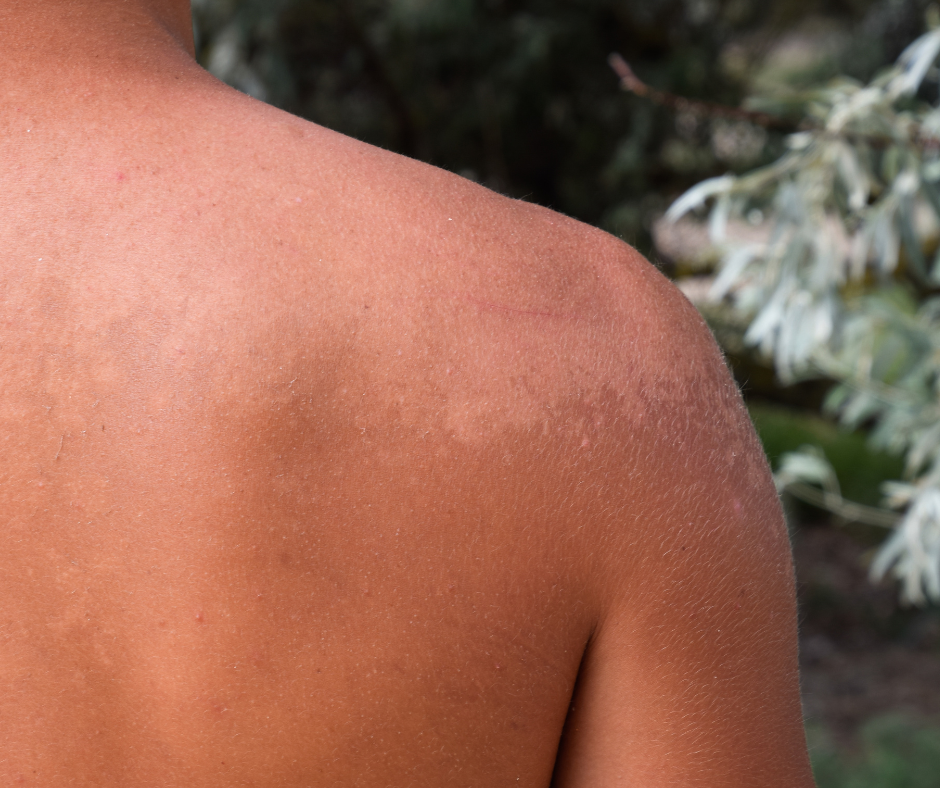As the warm rays of the sun beckon us outdoors during the summer season, it’s important to prioritize sun safety to prevent the unpleasant experience of sunburn. Sunburns not only cause discomfort but can also lead to long-term skin damage and increase the risk of skin cancer. Here are some practical tips to help you prevent unexpected sunburns and enjoy the summer season with healthy and protected skin.
Sunscreen is your first line of defense against harmful UV rays. Choose a broad-spectrum sunscreen with SPF 30 or higher and apply it generously to all exposed areas of your skin, including your face, neck, arms, and legs. Remember to reapply every two hours or more frequently if you’re swimming or sweating.
The sun’s rays are strongest between 10 a.m. and 4 p.m. Whenever possible, seek shade during these peak hours to reduce your exposure to intense sunlight. Plan outdoor activities in the morning or late afternoon when the sun’s rays are less intense.
Covering up with protective clothing is an effective way to shield your skin from the sun’s rays. Opt for lightweight, breathable fabrics that cover your arms, legs, and shoulders. Wide-brimmed hats and sunglasses that block UV rays are also essential to protect your face, neck, and eyes.
Proper hydration is crucial for maintaining healthy skin and preventing sunburn. Drink plenty of water throughout the day, especially when spending time outdoors. Staying hydrated helps your skin stay moisturized and supports its natural ability to repair and protect itself.

Remember that surfaces like sand, water, and snow can reflect and intensify the sun’s rays, increasing your risk of sunburn. Take extra precautions when engaging in activities near reflective surfaces. Apply sunscreen more frequently, seek shade, and wear protective clothing to minimize the risk.
The delicate skin on your lips and ears is often overlooked but equally susceptible to sunburn. Apply a lip balm with SPF protection and wear a wide-brimmed hat or use a scarf to shield your ears from the sun’s rays.
If you’re spending extended periods outdoors, schedule regular breaks in shaded areas. This allows your skin to cool down and recover from prolonged sun exposure. Use this time to reapply sunscreen and hydrate.
UV rays can still penetrate through clouds, so don’t let cloudy days fool you into thinking you’re safe from sunburn. Apply sunscreen as you would on sunny days and follow sun-safe practices regardless of cloud cover.
Certain medications, such as antibiotics, acne treatments, and antihistamines, can increase your skin’s sensitivity to the sun. Be aware of any medications you’re taking and consult your healthcare provider or pharmacist to understand their potential side effects. Take extra precautions if needed.
Whether you’re spending time with family or friends, set a good example by practicing sun-safe behaviors. Encourage others to protect their skin, and share your knowledge about the importance of sun safety.


